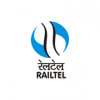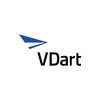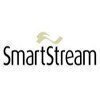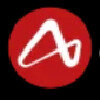L1 Support Engineer
10+ L1 Support Engineer Interview Questions and Answers

Asked in Best Sellers

Q. What are the different types of firewalls?
Firewalls are network security devices that monitor and control incoming and outgoing network traffic.
Packet-filtering firewalls
Proxy firewalls
Stateful inspection firewalls
Next-generation firewalls
Application-level gateways

Asked in Best Sellers

Q. How do you troubleshoot an issue?
Troubleshooting an issue involves identifying the problem, gathering information, analyzing data, and implementing a solution.
Identify the problem by gathering information from the user or system logs.
Analyze the data to determine the root cause of the issue.
Implement a solution by following established procedures or using problem-solving techniques.
Test the solution to ensure the issue is resolved.
Document the troubleshooting steps and the solution for future reference.
L1 Support Engineer Interview Questions and Answers for Freshers

Asked in HP Computing and Printing Systems

Q. Brief about the Laptop and desktop Hardware
Laptop and desktop hardware refers to the physical components that make up a computer system.
Laptops are portable and have built-in batteries
Desktops are stationary and require external power sources
Both have a CPU, RAM, storage, and input/output devices
Laptops have smaller components and are more difficult to upgrade
Desktops have larger components and are easier to upgrade
Examples of hardware include motherboards, processors, hard drives, and graphics cards
Asked in Pinnacle Technology

Q. What are objects and classes in Java?
Objects and classes are fundamental concepts in Java programming language.
Objects are instances of classes that encapsulate data and behavior.
Classes are templates or blueprints that define the properties and methods of objects.
Objects communicate with each other by invoking methods on each other.
Inheritance allows classes to inherit properties and methods from other classes.
Polymorphism allows objects to take on multiple forms and behave differently based on their context.
Asked in Pinnacle Technology

Q. What are the concepts and types of OOPs?
Ops concept refers to the practice of DevOps, which involves collaboration between development and operations teams to improve software delivery.
Ops concept is a key component of DevOps
It involves collaboration between development and operations teams
The goal is to improve software delivery and reliability
Types of Ops concepts include continuous integration, continuous delivery, and continuous deployment

Asked in Railtel Corporation Of India

Q. Equipment Card names and its functions, Device configuration
Equipment cards are essential components in networking, detailing device functions and configurations for efficient management.
Network Interface Card (NIC): Connects a computer to a network, enabling communication and data transfer.
Graphics Card: Renders images and video, crucial for gaming and graphic design applications.
Storage Controller Card: Manages data flow between the computer and storage devices, enhancing performance and reliability.
Sound Card: Processes audio data,...read more
L1 Support Engineer Jobs




Asked in HP Computing and Printing Systems

Q. Brief about Windows operating system.
Windows is a popular operating system developed by Microsoft.
Windows is a graphical user interface (GUI) based operating system.
It supports multitasking and multi-user functionality.
It has a wide range of applications and software support.
Windows has different versions like Windows 7, 8, 10, etc.
It is widely used in personal computers, laptops, and servers.

Asked in Ambit Software

Q. Tell me about joins in SQL.
Joins in SQL are used to combine data from two or more tables based on a related column.
Joins are used to retrieve data from multiple tables in a single query
Common types of joins include INNER JOIN, LEFT JOIN, RIGHT JOIN, and FULL OUTER JOIN
Joins are performed using the JOIN keyword and specifying the tables and the columns to join on
Example: SELECT * FROM table1 JOIN table2 ON table1.column = table2.column
Share interview questions and help millions of jobseekers 🌟


Asked in Technomine

Q. What is DHCP, DNS Domin?
DHCP is a network protocol that automatically assigns IP addresses to devices, while DNS is a system that translates domain names to IP addresses.
DHCP stands for Dynamic Host Configuration Protocol
DHCP automatically assigns IP addresses to devices on a network
DNS stands for Domain Name System
DNS translates domain names to IP addresses
DHCP and DNS are essential components of network communication

Asked in HP Computing and Printing Systems

Q. Explain about Windows versions
Windows is a series of operating systems developed by Microsoft.
Windows 1.0 was released in 1985
Windows 95 was a major release with a new user interface
Windows XP was a popular version that was released in 2001
Windows 10 is the latest version released in 2015

Asked in Simplify Home

Q. Can you tell me about yourself?
I am a dedicated L1 Support Engineer with a passion for problem-solving and customer service.
Experience in troubleshooting hardware and software issues, e.g., resolving printer connectivity problems.
Strong communication skills, ensuring clear explanations to non-technical users.
Familiarity with ticketing systems like Jira or ServiceNow for tracking support requests.
Ability to work under pressure, e.g., managing multiple support tickets during peak hours.
Knowledge of basic net...read more

Asked in Qualsquad Infotech

Q. What is NFS,crontab
NFS is a network file system used for sharing files between Unix/Linux systems. crontab is a file used to schedule tasks to run at specific times.
NFS stands for Network File System and allows remote file systems to be accessed over a network.
crontab is a file that contains scheduled tasks to be executed at specific times.
NFS is commonly used in Unix/Linux environments for sharing files and directories.
Examples of crontab usage include scheduling backups, running maintenance t...read more
Asked in 24online Info Technologies

Q. Routing Types
Routing types refer to the methods used to direct network traffic between devices.
Static routing: manually configured routes
Dynamic routing: routes are automatically updated based on network changes
Default routing: used when no specific route is available
Policy-based routing: routes based on specific criteria, such as source IP or protocol
Multicast routing: used for sending data to multiple recipients
Anycast routing: used to direct traffic to the nearest available server
Asked in 24online Info Technologies

Q. Unix vs linux
Unix is an operating system developed in the 1970s, while Linux is a Unix-like operating system developed in the 1990s.
Unix is proprietary and closed source, while Linux is open source.
Unix is typically used in enterprise environments, while Linux is popular for personal and server use.
Unix has a limited number of distributions, while Linux has many distributions such as Ubuntu, Fedora, and Debian.
Unix has a higher cost of ownership due to licensing fees, while Linux is free ...read more
Interview Experiences of Popular Companies








Reviews
Interviews
Salaries
Users

















